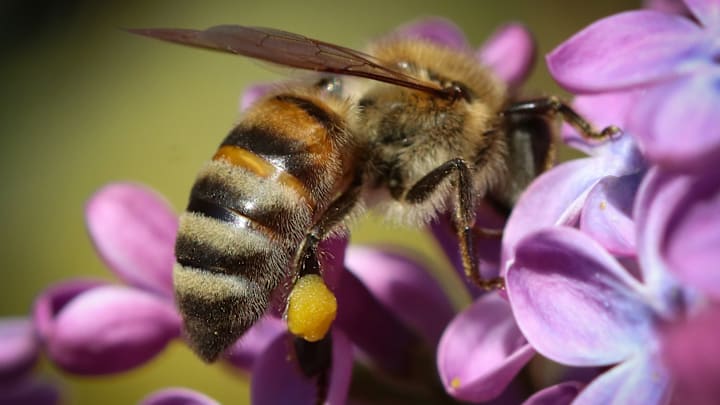Vaccines have been instrumental in improving human health. Now it appears they might be able to do the same for honeybees.
Early last week, biotech company Dalan Animal Health announced the approval of a honeybee vaccine, the first ever for an insect. The conditional license, provided by the U.S. Department of Agriculture, could help honeybees combat American foulbrood, a disease caused by Paenibacillus larvae, a spore-forming bacterium.
Foulbrood strikes honeybees in the pre-pupal or pupal stage, killing them. The condition can wipe out colonies and beekeepers struggle to combat it. Antibiotics for it offer only mixed results, are time-intensive to administer, and can be costly. Often, the only solution is to burn infected hives and bees.
Dalan’s vaccine isn’t given via a syringe; instead, bees ingest dead P. larvae cells, then pass them on via their royal jelly, or sugar feed, to the queen. From there, the vaccine will wind up in her ovaries. This way, the developing larvae are immunized before they're born.
“This is an exciting step forward for beekeepers, as we rely on antibiotic treatment that has limited effectiveness and requires lots of time and energy to apply to our hives,” Trevor Tauzer, owner of Tauzer Apiaries and a California State Beekeepers Association board member, said in a statement. “If we can prevent an infection in our hives, we can avoid costly treatments and focus our energy on other important elements of keeping our bees healthy.”
The vaccine—which the company claims is safe to use in organic farming—is set to be distributed this year. Because it’s a conditional license, the USDA will evaluate the vaccine and its efficacy after a period of time. At that point, they can extend the conditional license or grant a full license.
Bees have considerable stress to deal with when it comes to declining populations, from pollution to environmental changes. If Dalan’s product is successful, beekeepers will have one less thing to worry about.
[h/t Smithsonian]
